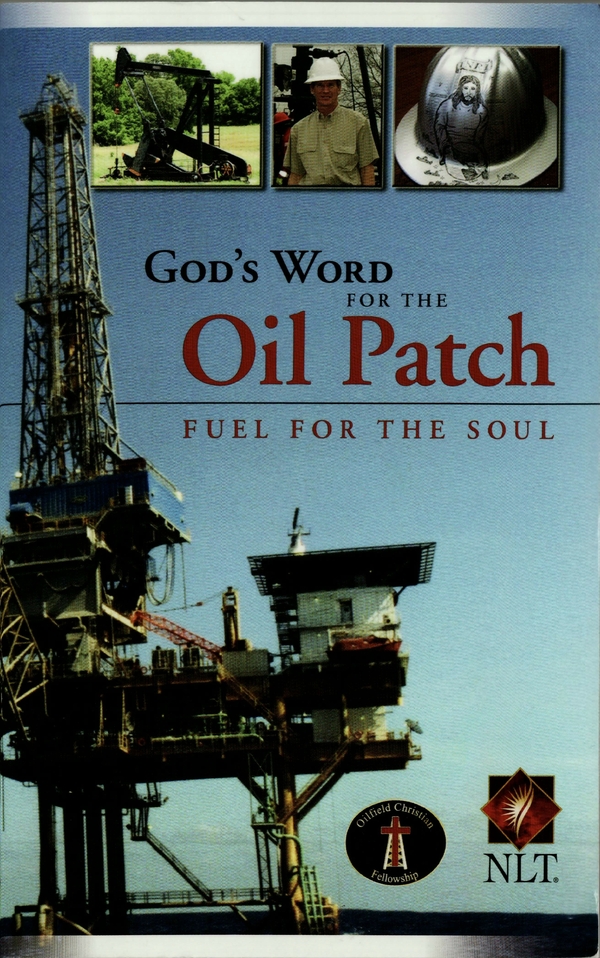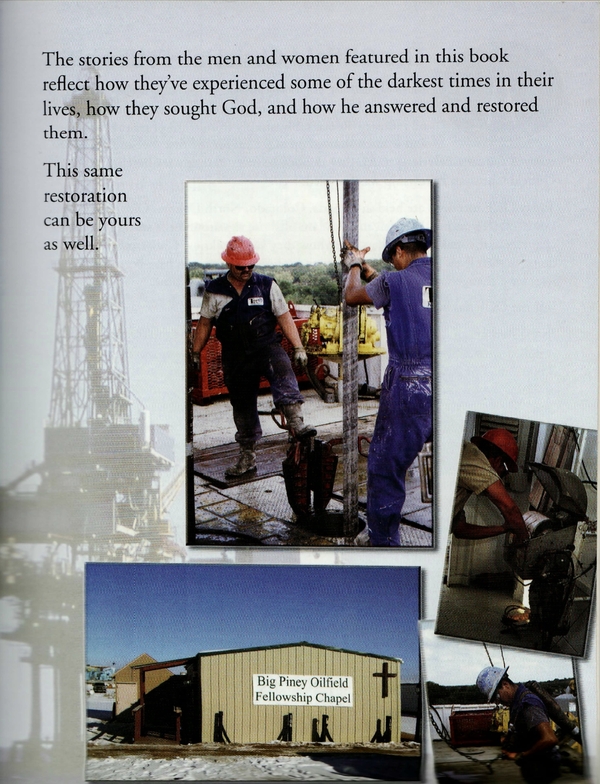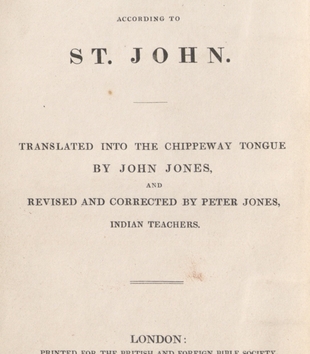Judith Ellen Brunton is a scholar of religious studies and the environmental humanities. She is currently a William Lyon Mackenzie King Postdoctoral Fellow at the Weatherhead Center for International Affairs, Harvard University. Her doctoral work took an ethnographic and archival approach to explore how legacies of oil extraction allow for contemporary imaginaries of the good life in Alberta. Judith is broadly interested in questions of land and labor, secularity and enchantment, religion-making, and method, in the North American West.
In June 2018 I attended the Oilfield Christian Fellowship Prayer Breakfast in conjunction with the Global Petroleum Show (now the Global Energy Show). The Calgary Chapter of the Oilfield Christian Fellowship holds a breakfast each year on this occasion at the Calgary Petroleum Club, a private club established in the late 1940s to house the meetings and social events of Calgary’s oil executives. It was here that I was given the bible God’s Word for the Oil Patch: Fuel for the Soul pictured. This bible begins with the message: “The search for oil and gas can be an adventure and also rewarding, but at the same time it can be disruptive and dangerous.” This balance of risk and reward and the implication that the individual oil worker has the power to either grasp this energy or have it consume them is at the forefront of oil culture in Calgary. The bible is an opportunity to think about theologies of material economies in North America including how people engaged in oil extraction in Canada theorize both the value of energy and the kind of lives people need to live to access this value.
For the people I was seated with at breakfast, oil work provided narratives and metaphors through which they navigated a Christian story. But the way they describe the materiality of oil and the work of its extraction speaks to a broader experience, one related to a non-material infrastructure of values, narratives, and virtues. Both the messaging of the Oilfield Christian Fellowship and other groups in Calgary offer a narrative in which to live a good life you have to find a way to navigate or manage the energy that oil work produces. Calgary’s municipal economic development campaign suggests this centrality of fuel in its use of the slogan, “Be Part of the Energy.” While this campaign is not motivated by the Christian framework of the Oilfield Christian Fellowship, its narrative proposes a higher power that moves through oil and the energy produced by it to create meaning and possibility in people’s lives.
Later that afternoon at the Global Petroleum Show, and throughout my fieldwork in Calgary, I spoke to people for whom being in relation to oil through work is an important part of how they craft themselves and imagine their futures. This bible God’s Word for the Oil Patch: Fuel for the Soul points to a shared condition in Calgary’s oil culture: To have the kind of soul that lives a good life you need to manage oil and its energy. The important implication here is that souls are things that need fuel, be it “God’s word” or oil itself. Oil work, in this context, becomes soul work.
Notes
Imprint
10.22332/mav.obj.2022.15
1. Judith Brunton, "Fuel for the Soul," Object Narrative, MAVCOR Journal 6, no. 3 (2022), doi: 10.22332/mav.obj.2022.15.
Brunton, Judith. "Fuel for the Soul." Object Narrative. MAVCOR Journal 6, no. 3 (2022), doi: 10.22332/mav.obj.2022.15.





